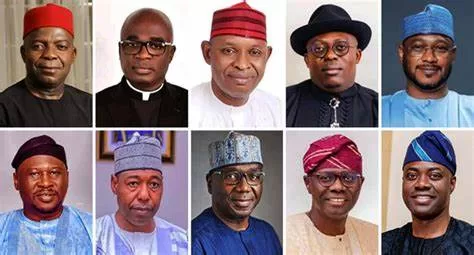
GOVERNORS, STOP SQUANDERING FUEL SUBSIDY WINDFALL – DAILY TRUST
Since May 2023 when President Bola Ahmed Tinubu removed subsidy on petrol, Nigerians have been groaning from the pains inflicted on them by the decision. The subsidy cut led to massive increase in the costs of transportation, food, consumer goods, house rents and other essentials for daily living.
On the flipside, governors of the 36 states and the minister of the Federal Capital Territory (FCT) celebrate every month as the funds taken from Nigerians in the name of subsidy removal are channelled into the coffers of the states.
In 2024 alone, Nigerian governors collectively received N5.22 trillion—a 45.5 per cent increase from the previous year, 2023—while local governments also saw a staggering 96 per cent increase in their allocations. State governors still control local government funds despite the Supreme Court’s pronouncement against it in 2024.
Governors are not in denial about the fortune they receive from the Federation Account as a result of the subsidy removal. Imo State Governor Hope Uzodimma admitted as much in January when he said, “It [subsidy removal] is a direct blessing; it is not a disguise to the sub-nationals because more monies are now coming to states, and state governments must do things to show citizens that they can do these things because they now get more monies as a result of the fuel subsidy removal by the federal government.”
The funds from subsidy have indeed been a blessing to state governors, but they have not, in any meaningful way, improved the lives of ordinary Nigerians – from the Federal Capital Territory in Abuja to the 36 states.
Primarily, the funds should have been redistributed in a manner that would ease the impact of the subsidy removal on Nigerians. This has not been done. Only 10 out of 36 state governors have begun paying the N70,000 minimum wage to civil servants in their states.
It follows, therefore, that most civil servants in Nigeria are forced to bear the brunt of inflated costs for everyday goods while surviving on meagre and unrealistic salaries. To make matters worse, there is no visible government intervention in health care as citizens pay out-of-pocket for medications.
Nigerians in rural areas lack access to qualified medical doctors. The education sector is in shambles—public schools are starved of basic teaching aids, laboratories, libraries and qualified teachers. Roads, both state and federal, are in deplorable conditions, and peasant farmers—who produce the bulk of the food Nigerians consume—are left to their own devices to fend off bandits and procure inputs at unaffordable prices.
In essence, Nigerian governors are failing to invest the excess funds in sectors and institutions that would benefit the Nigerian people. Many state governors throw vast sums of money into what they consider to be legacy projects—projects that bear their signature and offer opportunities to line their pockets from the public treasury.
Notable among such vanity projects are the construction or renovation of government houses at exorbitant costs. Other states build fanciful flyovers where they are neither needed nor useful. A rough estimate by experts puts the funds being squandered on government houses and flyovers at about N200 billion.
These are the vanity projects that Nigerians can see with their own eyes, but behind the scenes, governors funnel even more money into phantom and fictitious projects that remain invisible to the public.
It is clear that when President Tinubu initiated the removal of fuel subsidy, he did not think through how the excess funds would be reinvested for the public good. He may have viewed the channelling of huge sums to governors as the politically expedient move to secure his re-election in 2027, but in other climes, such windfalls are invested in sovereign wealth funds to cushion future economic crises.
Other ways of utilising such funds include subsidising public transportation, improving hospitals, equipping primary health centres and ensuring access to affordable health care. The funds could be used to renovate schools, hire qualified teachers and provide learning materials; build and maintain roads, bridges and public transport systems to enhance mobility and commerce; or even upgrade electricity and water supply systems, especially in rural areas.
They could be invested in sectors that could create jobs, like public works, mechanised agriculture, feeder roads construction and the like.
Most state governors engage in reckless spending because the arm of government that should keep them in check is either asleep at the wheel or has been hypnotised by the governors themselves. Section 128 empowers the Houses of Assembly to investigate any person, authority, ministry or government department charged with executing or administering laws, especially in the disbursement or management of public funds.
Governors of states fall squarely within this category. Section 129 empowers the Assembly to summon witnesses, issue subpoenas and compel the production of documents, while Section 188 provides for impeachment proceedings if corruption or fraud amounts to gross misconduct. Our Houses of Assembly must wake up to their responsibilities—they are the voice of the grassroots and must hold state governors accountable to the people.
We call on the Nigerian Governors Forum (NGF) to come together and articulate how the excess funds should be applied. The body has a think tank capable of studying how such funds are used for the public good in other societies and advising our governors accordingly.
The current trend—where governors live recklessly, burn public funds on overseas junkets, launder state funds to acquire properties in Abuja, Dubai and Europe and bask in luxury—spells doom for the people. Our governors must be called to order.
 Premium News
Premium News